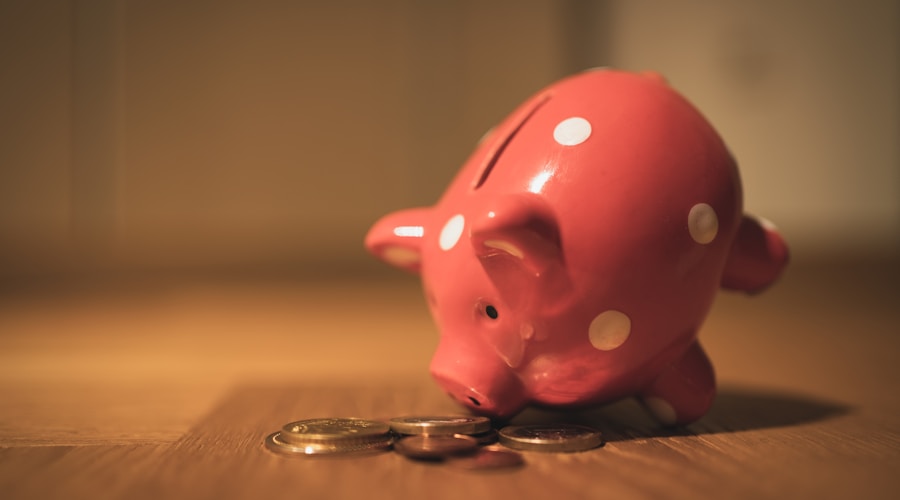Living on credit can feel like a never-ending cycle, but it's possible to break free from it. By making some changes and being proactive, you can start on the path to becoming debt-free. This article will provide you with effective strategies to stop living on credit and take control of your finances.
As financial expert Dave Ramsey once said, "You must gain control over your money or the lack of it will forever control you."1 It's time to take control and stop letting your debt dictate your life.
Understand Your Credit Use
It's essential to have a clear understanding of how you're using credit and what impact it has on your financial situation. Take a moment to reflect on your credit habits and the reasons behind them. Are you using credit to cover basic expenses because your income isn't sufficient, or are you simply overspending?
Evaluate Your Credit Habits
Take a deep dive into your credit card statements and payment history. Look for patterns in your spending and payment behavior. Are you consistently carrying a balance from month to month, or are you using credit responsibly and paying off the full balance?
According to financial expert Suze Orman, "The only way to create true financial freedom and break the chains of debt is to understand your relationship with credit and change harmful behaviors."
Create a Budget Plan
Now that you understand your credit use and have acknowledged the need to become debt-free, it's time to create a budget plan. This is a crucial step in taking control of your finances and putting an end to living on credit.
Your budget should outline your monthly income and expenses, including bills, groceries, transportation, and other necessities. It will help you see where your money is going and where you can make adjustments to pay off your debts. As financial author Dave Ramsey wisely said, "A budget is telling your money where to go instead of wondering where it went".
To create a budget plan, start by listing all of your sources of income. This could include your salary, freelance work, or any other money you receive.
Next, list all of your monthly expenses. Be sure to include everything, no matter how small. This will help you get a clear picture of your financial situation.
Once you have your income and expenses listed, compare the two to see if you have a surplus or if you are in the negative. If you're spending more than you earn, it's time to make some adjustments. Look for areas where you can cut back, such as dining out or subscription services.
Creating a budget plan is essential in changing your financial habits and getting out of debt. It allows you to see where your money is going and make conscious decisions about your spending. As financial advisor Suze Orman said, "A big part of financial freedom is having your heart and mind free from worry about the what-ifs of life".

Cut Unnecessary Spending
When it comes to getting out of debt, cutting unnecessary spending is a crucial step. It's important to take a hard look at your spending habits and identify areas where you can make cuts. This may require some sacrifices, but it's worth it in the long run.
Look at your monthly expenses and ask yourself if there are things you can live without. For example, do you really need that expensive coffee every morning, or could you make it at home for a fraction of the cost? Are you eating out too often, when you could be cooking at home instead?
"Cutting unnecessary spending is tough, but it's the key to becoming debt-free. It's about making small sacrifices now for a better financial future," says Sarah, who successfully paid off $20,000 in credit card debt.
You may also want to consider downsizing certain aspects of your life, such as finding a cheaper place to live or getting rid of a car payment by using public transportation.
Remember, every dollar you save by cutting unnecessary spending can go towards paying off your debt. It's all about making small changes that add up to a big impact.
By taking a close look at your spending habits and making some adjustments, you can free up extra money to put towards your debt and work towards becoming debt-free.
Increase Your Income
One effective strategy to become debt-free is to increase your income. By bringing in more money, you can accelerate your debt repayment and improve your financial situation.
There are various ways to increase your income. You can consider taking on a part-time job, freelancing, or starting a side business. As financial expert Suze Orman once said, "The only way to permanently take control of your financial life is to dig deep and fix the root problem."
In addition, you can also explore opportunities for career advancement in your current job or seek out higher-paying employment. "Sometimes, the best investment is in yourself," advises bestselling author Robert Kiyosaki in his book "Rich Dad Poor Dad".
By increasing your income, you can redirect more funds towards paying off your debts, which ultimately helps you to break free from the cycle of living on credit.

Make a Debt Payment Plan
Creating a debt payment plan is crucial to becoming debt-free. Start by making a list of all your debts, including the total amount owed, interest rates, and minimum monthly payments. This will help you visualize the full picture of your debt and prioritize which debts to focus on first.
By prioritizing and organizing your debts, you can create a plan that allows you to pay them off systematically. Financial expert, Dave Ramsey, advises, "List your debts smallest to largest, regardless of interest rate. Pay minimum payments on all debts except the smallest – throw everything you have at it."
Once you've prioritized your debts, consider using the debt snowball method, which involves paying off the smallest debts first to gain momentum and motivation. This can give you a sense of accomplishment and empower you to tackle larger debts.
Set manageable and realistic goals for debt repayment. For example, aim to pay off a certain amount of debt within a specific timeframe. This will keep you focused and motivated. As you accomplish each goal, celebrate your progress and use it as inspiration to continue.
Additionally, consider negotiating with creditors to lower interest rates or set up a payment plan that suits your financial situation. Many creditors are willing to work with you if you communicate openly and honestly about your financial struggles.
As you make your debt payment plan, remember that consistency and discipline are key. Stick to your plan, and don't take on new debt. Hold yourself accountable and remind yourself of the freedom and peace of mind that comes with being debt-free.
Look for Lower Interest Rates
When you're living on credit, high-interest rates can make it even more challenging to get out of debt. So, it's crucial to explore options for lower interest rates. You can start by contacting your current creditors and asking for a lower rate. You may be surprised to find that they are willing to work with you, especially if you have a history of on-time payments.
Another option is to consider consolidating your debt with a personal loan or a balance transfer to a credit card with a lower interest rate. This can help you save money on interest and simplify your monthly payments.
According to financial expert Chris Hogan, "Lowering your interest rates can make a significant difference in how quickly you can pay off your debt. Don't be afraid to negotiate with your creditors or look for alternative options that offer better rates."
Keep in mind that lowering interest rates may require some effort on your part, but the potential savings make it well worth it. By reducing the amount of interest you're paying, you'll be able to put more money toward paying down the principal balance and ultimately become debt-free sooner.
It's essential to be proactive and persistent when it comes to seeking lower interest rates. Remember, every little bit counts, and even a small reduction in interest can make a big difference in your journey to financial freedom.

Stay Motivated and Avoid New Debt
Staying motivated while on the journey to becoming debt-free is crucial. It's not always easy, but you can do it! Remember, every small step you take brings you closer to your goal.
Here are some practical tips to help you stay motivated and avoid new debt:
1. Celebrate Your Progress
Take a moment to celebrate each milestone you reach. Whether it's paying off a credit card or sticking to your budget for a whole month, acknowledging your achievements will keep you motivated to continue.
2. Find Support
Connect with others who are also working towards a debt-free life. Join online forums, attend support groups, or even talk to friends and family members who can offer encouragement and advice.
3. Visualize Your Goal
Imagine yourself living a life free from the burden of debt. Visualize the peace of mind and financial freedom you will enjoy once you achieve your goal. This can help you stay focused and motivated.
4. Avoid Temptation
It's important to identify the triggers that lead you to accumulate more debt. Whether it's online shopping, dining out, or taking out new loans, find ways to avoid these temptations. One practical way is to unsubscribe from tempting marketing emails or unfollow shopping websites on social media.
5. Reward Yourself
As you make progress in paying off your debt, consider rewarding yourself for your hard work. It doesn't have to be a lavish expense, but a small treat can help keep your spirits high.
Remember, staying motivated is about staying focused on your goal and the benefits it will bring to your life. As financial expert Suze Orman once said, "When you own your own power, you become a magnet to attract money, you become a magnet to attract opportunities. You’re a magnet for everything that you need to be the person that you desire to be."
By staying motivated and committed to your goal, you can avoid new debt and continue on the path to financial freedom.
Conclusion
Congratulations on taking the first steps to become debt-free! By understanding your credit use, creating a budget plan, cutting unnecessary spending, increasing your income, making a debt payment plan, and looking for lower interest rates, you are well on your way to financial freedom.
Remember, "Debt is like any other trap, easy enough to get into, but hard enough to get out of". So, staying motivated and avoiding new debt is key to your success. As financial expert Brian Tracy once said, "Debt and credit are the lure of the industry. To maintain your fast-paced consumer lifestyle, you need to keep buying. In the quest to do so, people are encouraged to borrow more, spend more, and save less. This is a recipe for disaster."
Stay focused on your goals and keep reminding yourself of the benefits of being debt-free. By following these effective strategies and staying motivated, you can have a brighter, debt-free future ahead of you.
Remember, making small, consistent changes in your habits and financial decisions can lead to big results. As legendary investor Warren Buffet said, "Do not save what is left after spending, but spend what is left after saving."
By following these steps, you can take control of your finances and create a better future for yourself and your loved ones.

2Orman, S. (2009). The Money Class: Learn to Create Your New American Dream. Spiegel & Grau.
3Dave Ramsey, Financial Peace (1992)
4Suze Orman, The 9 Steps to Financial Freedom (1997)
5Dave Ramsey, Financial Peace (1992)
6Suze Orman, The 9 Steps to Financial Freedom (1997)
7Robert Kiyosaki, Rich Dad Poor Dad (1997)
8Dave Ramsey, Financial Peace (1992)
9Chris Hogan, Everyday Millionaires: How Ordinary People Built Extraordinary Wealth—and How You Can Too (2019)
10Suze Orman, The Road to Wealth: A Comprehensive Guide to Your Money (2001)
11Brian Tracy, The 21 Success Secrets of Self-Made Millionaires (2001)
12Warren Buffet, The Essays of Warren Buffet: Lessons for Corporate America (1997)